第39章 CHAPTER VII(6)
Each hamper contains a complete outfit for a separate twenty, cold provender, plates, glasses, knives, forks, and spoons: an agonized printed appeal from the fevered pen of Pinkerton, pasted on the inside of the lid, beseeches that care be taken of the glass and silver. Beer, wine, and lemonade are flowing already from the bar, and the various clans of twenty file away into the woods, with bottles under their arms, and the hampers strung upon a stick. Till one they feast there, in a very moderate seclusion, all being within earshot of the band. From one till four, dancing takes place upon the grass; the bar does a roaring business; and the honorary steward, who has already exhausted himself to bring life into the dullest of the messes, must now indefatigably dance with the plainest of the women.
At four a bugle-call is sounded; and by half-past behold us on board again, pioneers, corrugated iron bar, empty bottles, and all; while the honorary steward, free at last, subsides into the captain's cabin over a brandy and soda and a book. Free at last, I say; yet there remains before him the frantic leavetakings at the pier, and a sober journey up to Pinkerton's office with two policemen and the day's takings in a bag.
What I have here sketched was the routine. But we appealed to the taste of San Francisco more distinctly in particular fetes.
"Ye Olde Time Pycke-Nycke," largely advertised in hand-bills beginning "Oyez, Oyez!" and largely frequented by knights, monks, and cavaliers, was drowned out by unseasonable rain, and returned to the city one of the saddest spectacles I ever remember to have witnessed. In pleasing contrast, and certainly our chief success, was "The Gathering of the Clans," or Scottish picnic. So many milk-white knees were never before simultaneously exhibited in public, and to judge by the prevalence of "Royal Stewart" and the number of eagle's feathers, we were a high-born company. I threw forward the Scottish flank of my own ancestry, and passed muster as a clansman with applause. There was, indeed, but one small cloud on this red-letter day. I had laid in a large supply of the national beverage, in the shape of The "Rob Roy MacGregor O" Blend, Warranted Old and Vatted; and this must certainly have been a generous spirit, for I had some anxious work between four and half-past, conveying on board the inanimate forms of chieftains.
To one of our ordinary festivities, where he was the life and soul of his own mess, Pinkerton himself came incognito, bringing the algebraist on his arm. Miss Mamie proved to be a well-enough-looking mouse, with a large, limpid eye, very good manners, and a flow of the most correct expressions I have ever heard upon the human lip. As Pinkerton's incognito was strict, I had little opportunity to cultivate the lady's acquaintance; but I was informed afterwards that she considered me "the wittiest gentleman she had ever met." "The Lord mend your taste in wit!" thought I; but I cannot conceal that such was the general impression. One of my pleasantries even went the round of San Francisco, and I have heard it (myself all unknown) bandied in saloons. To be unknown began at last to be a rare experience; a bustle woke upon my passage; above all, in humble neighbourhoods. "Who's that?" one would ask, and the other would cry, "That! Why, Dromedary Dodd!" or, with withering scorn, "Not know Mr.
Dodd of the Picnics? Well!" and indeed I think it marked a rather barren destiny; for our picnics, if a trifle vulgar, were as gay and innocent as the age of gold; I am sure no people divert themselves so easily and so well: and even with the cares of my stewardship, I was often happy to be there.
Indeed, there were but two drawbacks in the least considerable.
The first was my terror of the hobbledehoy girls, to whom (from the demands of my situation) I was obliged to lay myself so open. The other, if less momentous, was more mortifying.
In early days, at my mother's knee, as a man may say, I had acquired the unenviable accomplishment (which I have never since been able to lose) of singing _Just before the Battle._ I have what the French call a fillet of voice, my best notes scarce audible about a dinner-table, and the upper register rather to be regarded as a higher power of silence: experts tell me besides that I sing flat; nor, if I were the best singer in the world, does _Just before the Battle_ occur to my mature taste as the song that I would choose to sing. In spite of all which considerations, at one picnic, memorably dull, and after I had exhausted every other art of pleasing, I gave, in desperation, my one song. From that hour my doom was gone forth. Either we had a chronic passenger (though I could never detect him), or the very wood and iron of the steamer must have retained the tradition. At every successive picnic word went round that Mr.
Dodd was a singer; that Mr. Dodd sang _Just before the Battle_, and finally that now was the time when Mr. Dodd sang _Just before the Battle;_ so that the thing became a fixture like the dropping of the dummy axe, and you are to conceive me, Sunday after Sunday, piping up my lamentable ditty and covered, when it was done, with gratuitous applause.
It is a beautiful trait in human nature that I was invariably offered an encore.